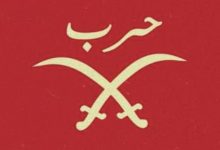Mustafa Kemal Atatürk, the founder and first President of the Republic of Turkey, passed away on November 10, 1938, at the age of 57. His death was attributed to cirrhosis of the liver, which was exacerbated by his long-term heavy alcohol consumption. Atatürk’s health had been deteriorating for some time prior to his death, as he had been experiencing various health issues, including chronic liver problems, for several years. Despite receiving medical treatment both domestically and abroad, his condition continued to worsen.
Atatürk’s lifestyle, marked by heavy drinking and smoking, is widely believed to have contributed significantly to his declining health. Throughout his life, he was known for his heavy consumption of alcoholic beverages, particularly raki, a traditional Turkish spirit. This excessive alcohol intake, combined with other factors such as stress and overwork, likely exacerbated his health problems and ultimately led to his untimely death.
In the months leading up to his passing, Atatürk’s health had noticeably deteriorated, with reports indicating that he had lost a significant amount of weight and appeared visibly frail. Despite his declining health, he remained active in political affairs and continued to fulfill his duties as President until the very end. However, his deteriorating physical condition eventually caught up with him, and he succumbed to his illness on November 10, 1938, at the Dolmabahçe Palace in Istanbul.
At the time of his death, Atatürk was mourned by the Turkish nation and people around the world who admired his leadership and vision. His passing marked the end of an era in Turkish history, as he had played a pivotal role in transforming the country into a modern, secular republic following the collapse of the Ottoman Empire. Despite his death, Atatürk’s legacy continues to loom large in Turkey, where he is revered as a national hero and the father of the nation.
Following his death, Atatürk’s body lay in state at the Dolmabahçe Palace, where thousands of mourners came to pay their respects. His funeral, held on November 21, 1938, was a somber and solemn occasion, with dignitaries from around the world in attendance to honor his memory. Atatürk was laid to rest at the Anıtkabir, a monumental mausoleum in Ankara that serves as his final resting place and a symbol of his enduring legacy.
In the years since his death, Atatürk’s memory has continued to be celebrated and commemorated in Turkey through various means, including statues, monuments, and public holidays. His ideas and principles, including secularism, nationalism, and modernization, remain central to the Turkish national identity and continue to shape the country’s political and social landscape to this day. Despite the passage of time, Atatürk’s influence and legacy remain as strong as ever, ensuring that he will always be remembered as one of the most important figures in Turkish history.
More Informations

Mustafa Kemal Atatürk, revered as the father of modern Turkey, led a remarkable life that profoundly influenced the course of Turkish history. Born in 1881 in the Ottoman Empire (in what is now Thessaloniki, Greece), Atatürk rose to prominence as a military leader during World War I, where he distinguished himself in battles such as Gallipoli, which played a pivotal role in the defense of the Ottoman Empire.
After the war, Atatürk emerged as the leader of the Turkish War of Independence, a struggle against foreign occupation forces and the remnants of the Ottoman regime. Through his strategic brilliance and charismatic leadership, Atatürk rallied the Turkish people behind the cause of independence and successfully established a new, secular republic in 1923, replacing the centuries-old Ottoman monarchy.
As the first President of Turkey, Atatürk embarked on an ambitious program of modernization and reform aimed at transforming Turkey into a modern, secular nation-state. His reforms, collectively known as Kemalism, encompassed a wide range of areas, including politics, law, education, and culture. Atatürk sought to break from the traditional Islamic norms of the Ottoman era and create a more secular and Western-oriented society.
One of Atatürk’s most significant reforms was the adoption of a new legal code based on European models, replacing the outdated Islamic law system. He also introduced secular education, establishing a network of schools and universities to provide modern education to the Turkish population. Atatürk believed that education was key to the progress and development of the nation, and he placed great emphasis on promoting literacy and scientific thinking.
In addition to modernizing Turkey’s legal and educational systems, Atatürk implemented sweeping social reforms aimed at promoting gender equality and women’s rights. He granted women the right to vote and stand for election, making Turkey one of the first countries in the world to do so. Atatürk also encouraged women to participate fully in public life and pursue education and careers outside the home.
Atatürk’s reforms extended beyond domestic affairs to include efforts to modernize Turkey’s economy and infrastructure. He implemented policies to promote industrialization, agricultural development, and infrastructure projects such as roads, railways, and bridges. Atatürk recognized the importance of economic development in building a strong and prosperous nation and sought to create a more self-sufficient and economically viable Turkey.
Throughout his tenure as President, Atatürk remained committed to secularism and the separation of religion and state. He abolished the Ottoman caliphate and replaced it with a secular system of government, firmly establishing Turkey as a modern, secular republic. Atatürk believed that secularism was essential for Turkey’s progress and development, enabling the country to break free from the constraints of religious conservatism and embrace the principles of democracy and individual freedom.
Atatürk’s legacy as a visionary leader and reformer continues to shape Turkish society and politics to this day. His image is prominently displayed in public spaces across Turkey, and his ideas and principles remain central to the country’s national identity. Despite his passing in 1938, Atatürk’s influence and legacy endure, serving as a guiding force for future generations of Turks as they navigate the challenges of the modern world.




